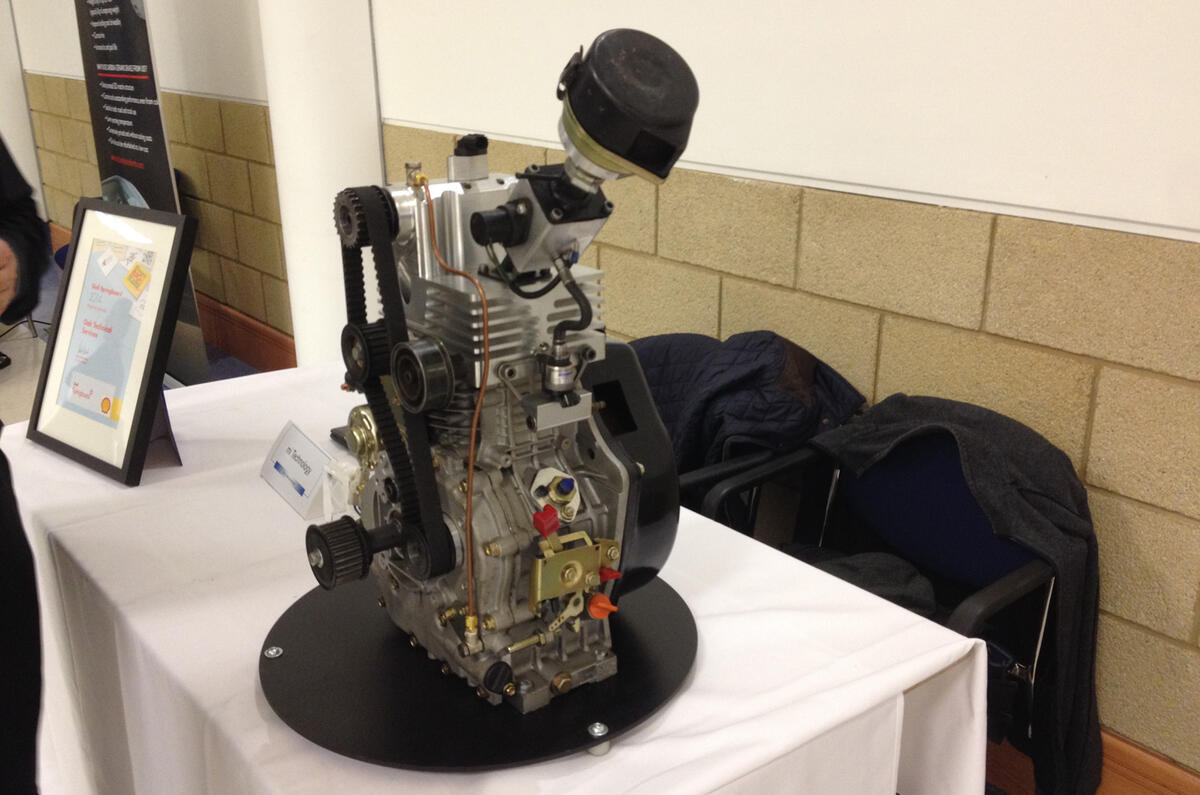A new British-designed and engineered one-cylinder engine has the ability to “self supercharge” without any external forced induction, improving performance and reducing CO2 emissions in the process.
The 400cc engine is the work of Oaktec’s Paul Andrews, and he believes it has the ability to be produced “in tens of millions” of units in a wide variety of applications and sectors, with its potential in the automotive sector in its current form likely to come from acting as a generator in a simple, low-cost, lightweight range-extender electric vehicle.
The reason the engine’s potential application is so wide, according to Andrews, is because it uses solely conventional components and no exotic materials or sealing processes.
The way it works is remaining confidential for now, but Andrews hints that the “self supercharging” comes from getting gases within the engine to flow and react in a different way, mimicking forced induction, and allowing freer breathing for the engine through its novel combustion architecture.
Even before the components within the engine have been optimised, bench tests have shown it to be 20 per cent more powerful and suitably more economical over the Yamada diesel engine on which the unit is based. A further 10 per cent improvement is achievable, believes Andrews, through further optimisation of the parts.
It currently runs on propane gas, but is very “fuel tolerant”, according to Andrews, and can run on a wide range of fuels including petrol, diesel, bio-ethanol and bio-methane.
The technology exists on a small one-cylinder unit at present, but can be adapted to multi-cylinder applications.
“In this simple form, it can be used as a range extender to generate electricity in a small, low-cost, lightweight electric vehicle,” said Andrews. “It’s a lot closer to market than most novel engines due to its components. Exotic seals and materials are not needed, and it can be built on any existing production line using off-the-shelf components.”
Other potential applications Andrews sees for the engine include the ability to power generators to produce electricity for third-world villages, provide power to a small aircraft, provide power for taxis in polluted cities, and provide a cheap, efficient powertrain for vehicles including tuk-tuks.
Andrews says there is still “lots to do” with regards to developing the engine, but he is looking at “commercial opportunities” for it, with his preferred option to be to tie-up with a UK manufacturer to develop multiple versions of the powerplant.









Join the debate
Add your comment
E85
I suppose you could feasibly
Go for it, Andrews